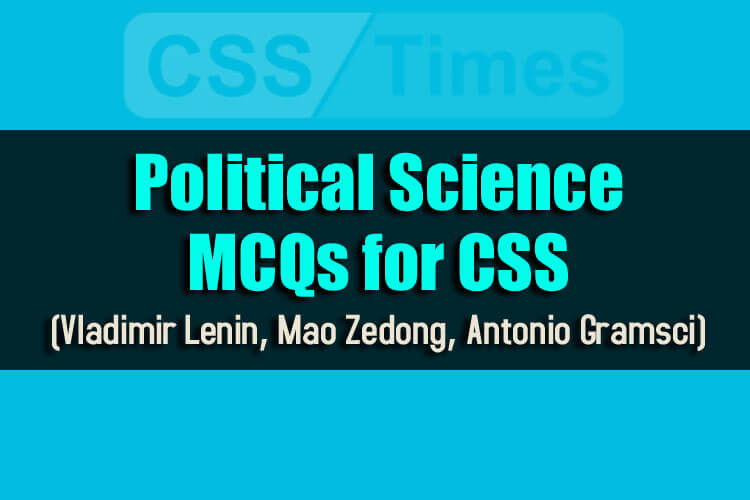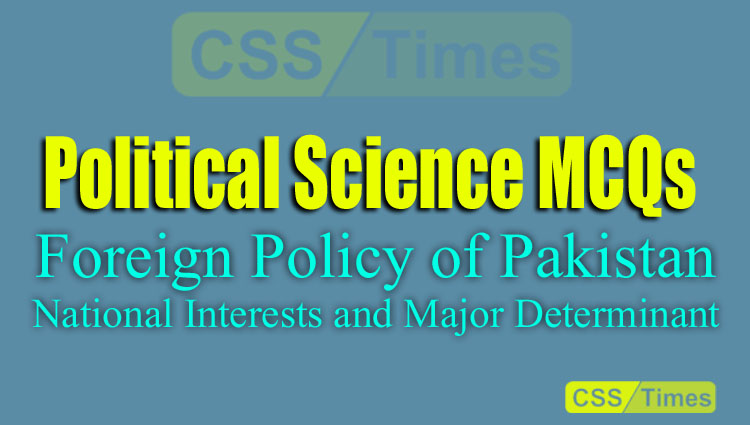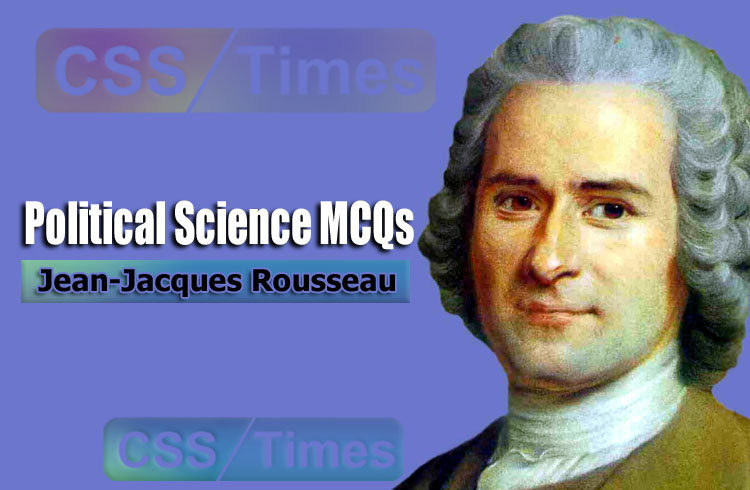Political Science MCQs
Vladimir Lenin MCQs

1) Which one of the following theories held that the State is a product and manifestation of the irreconcilability of class antagonisms?
(a) Evolutionary Theory
(b) Anarchist Theory
(c) Marxist-Leninist Theory
(d) Guild-Socialist Theory
Answer: (c)
2) “The Development of Capitalism in Russia was written by: (CSS-2005)
(a) Lenin
(b) Friedrich Engels
(c) Mao-Tung
(d) None of these
Answer: (a)




